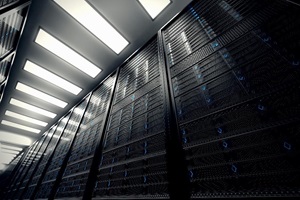- Distributed Energy Resources
- Energy Technologies
- Energy Technologies
- Policy Regulation
- Energy Cloud
- Energy Singularity
Are We Approaching the Energy Singularity? Counter Point

A Different Grid of Tomorrow
To be sure, the future grid will differ from today’s grid. It might not even be a grid as we know it in 2045, the estimated year of Kurzweil’s singularity vision. Furthermore, changes are already taking place quickly, with the decline of coal-powered plants, the rise of solar power, and the promise of affordable storage technologies, to name a few. Guidehouse’s Energy Cloud vision already foresees an energy world full of profound changes and decentralized structures, a system more dynamic and responsive than today’s.
It is tantalizing to imagine the future power grid (or ecosystem) with blazing efficiency, unparalleled reliability, and widespread availability. My colleague cites the rapid advancements around self-driving cars and Google processing billions of search queries a day to enable deeper understanding of human thought as examples of the pace of change from machine learning. Machines are getting smarter, but there are also setbacks, particularly where grid assets, old and new, have failed, including:
- The Fukushima Daiichi nuclear disaster in 2011
- The San Bruno pipeline explosion in 2010
- The Ivanpah solar power facility fire in May of this year
Even Google’s vaunted driverless car has collided with a bus. These negative events do not mean the problems can’t be overcome with powerful machines. Perhaps future super-intelligent systems will prevent or reduce the chances of such calamities. But these events do illustrate the downside of technology and the limits of machines.
In the energy sector, there is also the human constraint of regulation and business models. Even if technology breakthroughs take place, will regulators and politicians hold to the past and not allow transformations to emerge? Some are open to change. In California and New York, regulators and politicians have shown a willingness to embrace new ways of thinking about energy and new models. But others are likely to be more stubborn. Nevada regulators approved a price hike for solar customers, and SolarCity and Sunrun promptly pulled their operations from the state. In Montana and Wyoming, coal is still a powerful force for economic and political reasons.
Skepticism Abound
Among leading technology thinkers, respected names have trouble accepting Kurzweil’s future vision. Gordon Moore, cofounder of Intel and namesake of Moore’s Law, says the singularity is not likely to happen, at least not for a long time. Jeff Hawkins, cofounder of Numenta, a company developing a computer memory system based on the human neocortex and founder of Palm and Handspring, expects we will build machines that are more intelligent than humans, but there will be no singularity or runaway growth in intelligence. And Microsoft cofounder Paul Allen, who has devoted resources to his Allen Institute of Brain Science, has expressed serious doubts about the singularity occurring.
Count me among these skeptics. Predictions about breakthroughs often don’t pan out, or take way longer than expected. We were supposed to be commuting in flying cars, living in underwater cities, and colonizing other planets by now. We can imagine such things, but the future is difficult to see clearly. Some of what is imagined for the grid and energy is quite possible—I’m all for the wonderful magic, positive advancements, and geeky possibilities. Kurzweil is someone I respect. But the future also holds potential darkness, shadows, and unintended consequences. Man has a propensity to screw things up (wars), and his machines break down (think Space Shuttle Challenger or Chernobyl). Perhaps I’m stuck in a 2016 mindset, but my bet is the singularity moment is a long way off, if even possible. Moreover, the Kurzweil idea is too Panglossian. Machines will definitely grow smarter and the energy sector will benefit. But the process will be bumpy, unpredictable, and we will see a singular failure, or two, or three.